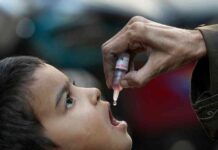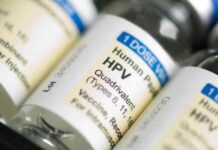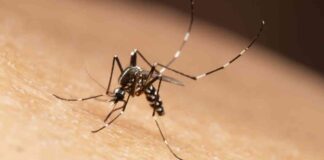Debunking the Myth: The Truth About Vaccines and Autism
Vaccines do not cause autism. This statement has been reiterated countless times in various forms, yet doubts persist among many individuals. The skepticism surrounding this issue has been further fueled by prominent figures like Robert F. Kennedy Jr., who has long asserted a link between vaccines and autism. As Kennedy’s nomination to lead the Department of Health and Human Services raised concerns, the debate over vaccine safety and autism resurfaced.
Amidst the ongoing controversy, it is crucial to delve into the scientific evidence that definitively debunks the notion that vaccines contribute to autism. By dissecting the three primary arguments proposed by vaccine skeptics, we can gain a comprehensive understanding of the rigorous research that has refuted these claims.
The Thimerosal Theory: Dispelling Misconceptions
One of the key contentions regarding vaccines and autism revolves around thimerosal, a preservative containing mercury that was once used in vaccines. Despite concerns over potential toxicity, subsequent studies have discredited any association between thimerosal and autism. In fact, a comprehensive review by the Food and Drug Administration revealed that the removal of thimerosal from vaccines did not correlate with a decrease in autism rates.
Numerous observational studies, including a detailed analysis in Denmark, have consistently demonstrated that thimerosal is not linked to autism. The meticulous tracking of health records in Denmark provided concrete evidence that the incidence of autism remained unaffected by the presence of thimerosal in vaccines. Moreover, subsequent studies in the United Kingdom and California corroborated these findings, underscoring the lack of a causal relationship between thimerosal and autism.
The MMR Vaccine Controversy: Separating Fact from Fiction
Another contentious issue surrounding vaccines and autism is the measles-mumps-rubella (MMR) vaccine. The initial uproar stemmed from a now-discredited study by Andrew Wakefield, which falsely claimed a connection between the MMR vaccine and autism. Despite the subsequent debunking of Wakefield’s research, lingering doubts persisted among some individuals.
Extensive investigations across multiple countries, including Finland, the United Kingdom, and the United States, have consistently invalidated the purported link between the MMR vaccine and autism. Notably, a comprehensive analysis of Danish health data published in the New England Journal of Medicine conclusively refuted any association between the MMR vaccine and autism. By meticulously analyzing large-scale studies and monitoring long-term health outcomes, researchers have unequivocally debunked the myth perpetuated by vaccine skeptics.
The ‘Too Many Doses’ Theory: Addressing Concerns
In addition to thimerosal and the MMR vaccine, another prevalent argument posits that the cumulative effect of multiple vaccines may trigger autism. This theory, popularized by public figures like Donald Trump, has been systematically refuted by scientific evidence. Contrary to the notion that an excessive number of vaccines could lead to adverse health outcomes, studies have shown that the current vaccine schedule is meticulously designed to minimize risks while maximizing protective immunity.
Moreover, advancements in vaccine technology have led to the development of targeted vaccines with fewer antigens, reducing the likelihood of adverse reactions. By conducting rigorous studies and analyzing real-world data, researchers have conclusively demonstrated that the number of vaccines administered to children does not increase the risk of autism. The meticulous scrutiny of vaccine safety protocols and the continuous evaluation of health outcomes have reinforced the safety and efficacy of vaccines in safeguarding public health.
In conclusion, the pervasive myth linking vaccines to autism has been thoroughly debunked by an extensive body of scientific research. Despite persistent misinformation and unfounded claims, the overwhelming consensus within the scientific community affirms the safety and efficacy of vaccines. As we navigate the complex landscape of public health and vaccination, it is imperative to rely on evidence-based information and expert insights to combat misinformation and protect the well-being of our communities.

















